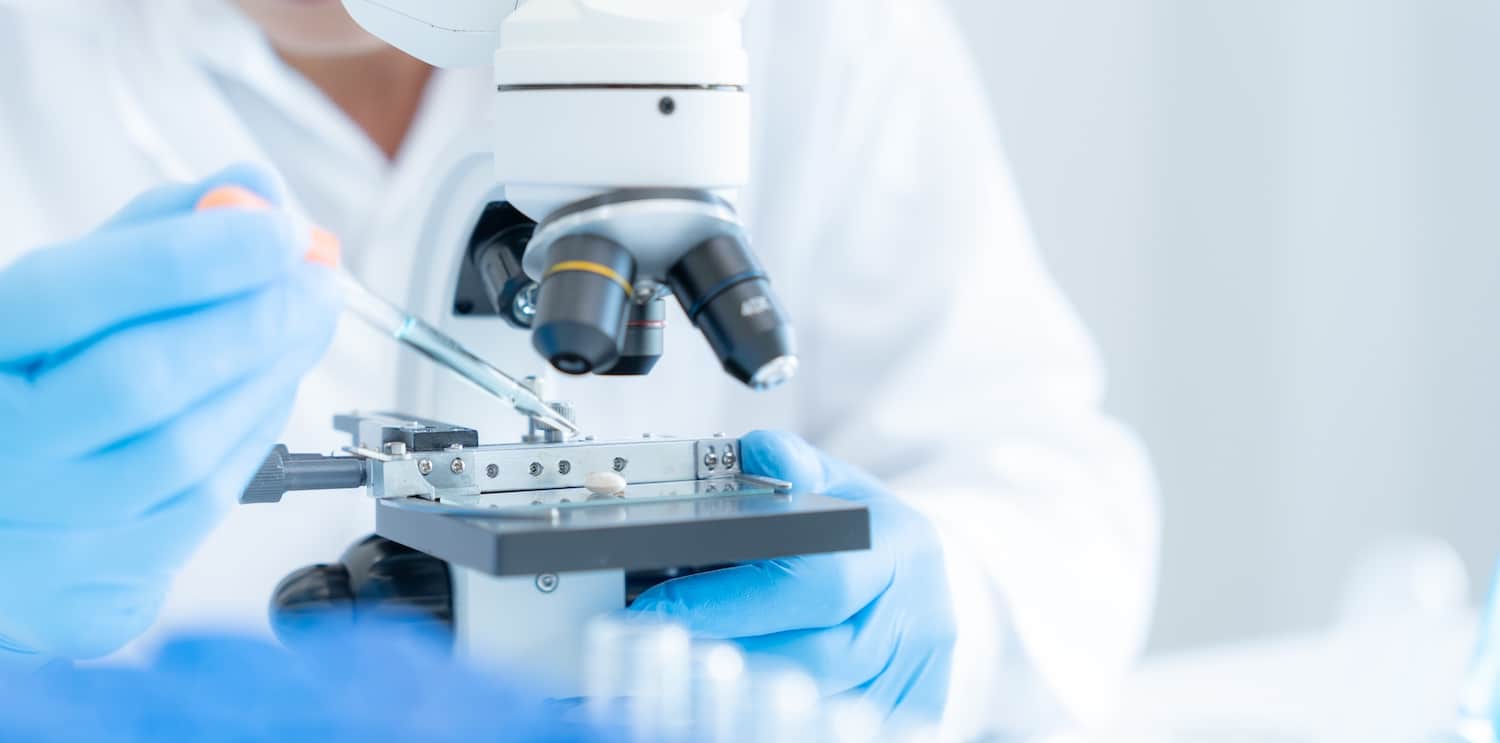How Cancer Clinical Trials Offer New Hope For Patients

Receiving a cancer diagnosis is a life-altering experience that creates a need for clarity and greater understanding about what’s ahead. The search for answers and the best care options can be frustrating, especially when a treatment that works well for some people might not work at all for others.
If you have a fear of running out of options, you’re not alone. Clinical trials can offer hope by broadening the scope of available treatments while also contributing to a greater understanding of your cancer type. This means other patients in similar situations could also benefit from your participation.
This guide will help you understand the pros and cons of cancer clinical trials and how genetic testing can help you find the best clinical study matches.
What are cancer clinical trials?
Cancer clinical trials are investigative studies that help researchers test the safety and efficacy of new and existing cancer treatments. In general, a clinical trial looks at methods of preventing, diagnosing, and treating a variety of serious diseases.
Most cancer clinical trials focus on treatment, meaning the investigator studies the feasibility and effectiveness of new and existing treatments across various groups of people with cancer. These treatment trials are led by a principal investigator, who in most cases is a medical doctor.
Compared to other types of clinical research, which might include healthy volunteers, cancer clinical trials most commonly study people who have already been diagnosed with cancer. Another key difference is that cancer clinical trials rarely use a placebo drug. Instead, certain research studies might compare the trial drug to a different medication, such as one currently being used as part of a standard treatment.
Phases of cancer clinical trials
Clinical trials are conducted in stages commonly referred to as “phases.” There are three primary phases in a cancer clinical trial: Phase I, Phase II, and Phase III.
The ultimate goal is for the research study to successfully move through all phases of the clinical trial so the researchers can submit an application to the U.S. Food and Drug Administration (FDA) for approval to market and sell the drug.
Each clinical trial stage is designed with a specific purpose in mind, and researchers seek to answer different questions along the way. In general, participants do not move through various stages of the same clinical study. They usually only participate in a single phase.
Phase I Clinical Trials
Phase I trials commonly study drug doses and side effects. The goal is to better understand:
- Which doses can be safely administered
- Whether the medicine has side effects that are tolerable compared to other treatments on the market
- Whether side effects and their severity increase with higher doses
Phase I clinical trials often explore how new drugs impact a variety of cancers. These studies are small, typically involving between 15 to 50 people. As with each clinical trial stage, the selection criteria are specifically tailored to the study. However, it is common for participants in Phase I studies to have advanced stages of cancer.
Phase II Clinical Trials
In Phase II studies, cancer clinical trials tend to focus on only one or two types of cancer. The study group typically includes fewer than 100 people with the same cancer type. While Phase I trials explore the safety of the drug at different dosages, Phase II trials take a deeper dive into the drug’s efficacy in treating the cancer.
Phase II trial eligibility tends to be more narrow. Researchers seek to reduce the degree of medical differences among participants, so eligibility criteria factors in your age, medical history, treatment history, and risk factors.
Phase III Clinical Trials
Phase III clinical trials test new treatments against existing therapies. Investigators are looking to see whether the new drug:
- Is more effective than current treatments
- Has fewer side effects
- Positively impacts participants’ quality of life
Hundreds – sometimes thousands – of people participate in Phase III clinical trials. The study groups are often randomized, meaning that different groups are assigned either the new drug or the standard treatment at random. This supports the accuracy of the results while ensuring each participant is still being treated according to current standards of care.
Clinical trials rarely involve placebo drugs, so each treatment group will still receive a drug developed to treat cancer.
What are the pros and cons of clinical trials for cancer patients?
While all medical treatments, including those tested in clinical trials, come with risks, there are also many potential benefits of agreeing to be treated with a study drug.
Benefits of clinical trials for cancer
Patients often enroll in clinical trials for cancer when current treatments haven’t worked. Therefore, clinical trials can provide hope to cancer patients by unlocking access to new treatment options.
Some advantages of clinical trials for cancer patients include:
- Access to new treatments: Cancer clinical trials commonly test therapies that are not yet approved by governing agencies. This means that participants have novel access to drugs that are not yet widely available but that could be life-changing in treating their cancer.
- Contribute to new research: Investigators are gathering information about how certain drugs interact within the body and how effective they might be for treating various cancer types. Cancer clinical trials provide the chance for you to help yourself and others in your shoes by advancing data collection for current and future studies.
- Potentially improve your quality of life: The new treatments being studied might work better for you than existing ones. They could also potentially have fewer side effects or improve your symptoms, even if they don’t fully get rid of them.
- Get expert care: Clinical trials are often initiated by leading experts in the field at highly-regarded institutions. You could get access to a higher level of care from doctors and researchers who specialize in your cancer type.
Risks of clinical trials for cancer
Because cancer clinical trials involve people, the study’s procedures must adhere to the standards of institutional review boards. As a result, clinical trials have strict measures in place to help keep participants safe.
This includes informed consent, which requires your care team to ensure you understand all of the benefits and risks associated with your participation in a trial before you decide to join.
While these guidelines are in place to prioritize patient safety, all medical treatments come with some level of risk. It’s important to discuss your cancer care with your doctor to determine whether the benefits of certain clinical trials may outweigh the risks when it comes to what’s best for your health.
Some possible risks of participating in clinical trials include:
- Side effects: As with any medical treatment, side effects are possible. Because clinical trials are actively studying how drugs interact within the body, the side effects of trial treatments might be less predictable. In some cases, side effects may be worse than those of standard treatments. If this occurs, you can always quit the study.
- Treatment effectiveness: Cancer clinical studies are working to prove a new drug’s efficacy, and not all treatments make it to the next phase. This means that the trial drug might not have any effect on your cancer, and it could be less effective than existing treatments. It’s possible that the new treatment may not provide any benefit to you.
- Randomized trials: Phase III cancer trials compare new interventions to standard treatments. This stage is sometimes randomized, meaning you do not get to select the treatment group in which you are placed. As a result, you might not have the opportunity to be treated with the new drug and might instead be receiving a treatment that is already available.
- Extra appointments: Cancer clinical trials might require additional medical appointments, which take additional time and could increase your treatment expenses.
Who pays for cancer clinical trials?
Cancer clinical trials are funded by a combination of sources, including the government, charitable organizations, universities, pharmaceutical companies, and private donors. The National Cancer Institute, an agency of the United States federal government, funds roughly half of all cancer clinical trials in the U.S.
While research organizations and government grants often cover the majority of costs directly associated with the study, the patient will likely pay out of pocket for general patient care costs, such as doctors’ visits, lab work, and hospital stays, as well as travel to and from appointments. These are costs that you would normally incur regardless of whether your treatment is part of a clinical trial.
Does insurance cover clinical trial costs?
Some insurance plans might cover the cost of routine patient care for clinical trial participants. Check with your insurance provider to learn more about what your plan might cover and whether pre-authorization is required.
There are also additional indirect costs to consider before enrolling in a clinical trial, such as costs associated with travel to the study site or time spent away from work. It is important to have a clear understanding of the additional obligations involved to plan for any direct or indirect out-of-pocket expenses.
How does genetic testing play a role?
Genetic testing can identify unique biomarkers for your cancer that can be helpful in determining why certain treatments might and might not be working for you. Biomarkers are things that can be measured in your body, blood, or tissue to provide useful information about your health. Common biomarkers include your pulse, blood pressure, and molecules made by tumors in your body.
Biomarkers paint a picture of whether the makeup of the gathered biological sample appears to be “normal” or if it signals a possible medical condition or disease. They play an important role in cancer treatments because they can provide greater insight into which interventions might work best for your specific condition.
Because biomarkers can reveal important information about your health, they can also help you to understand whether you are eligible for current cancer clinical trials. Data shows that 55% of all clinical oncology trials involve the use of biomarkers, which is an increase of 40% over the prior 18 years.
While it might seem daunting to identify a clinical trial that matches your distinct medical needs, Inocras simplifies this process with its whole genome sequencing test, CancerVision. Unlike most standard genetic panel tests, which look at less than 0.1% of your genome, whole genome genomic tests analyze about 99% of your genome.
Explore clinical trial opportunities with genomic testing
Finding the best clinical trials can be daunting and frustrating for two reasons:
- You often need biomarker testing to determine your eligibility
- There are many other inclusion and exclusion criteria you must meet to participate
CancerVision is a whole genome sequencing test that analyzes more than 99% of your entire genome, detecting both common and rare or complicated biomarkers to provide a higher likelihood of seeing which genetic changes are driving your cancer. It also provides clinical trial matching support and pre-screening for other medical information based on each trial’s inclusion and exclusion criteria.
See your cancer from new angles. Order your CancerVision test today.


